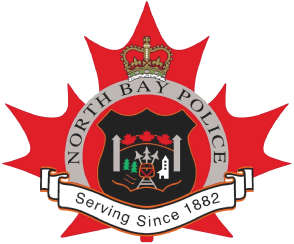
Civilian Employment
Discover policing from a 9-1-1 Call Taker/Dispatcher's perspective
We invited one of our full-time dispatchers from the North Bay Police Service's 9-1-1 Communications Centre to share her work experiences with the public by answering the questions below.
What attracted you to the job?
I was looking for a good career. I proactively submitted my resume to police headquarters and was thrilled to get a call for an interview when there was an opening.
Why do you think you got the job?
I have a diploma in radio broadcasting from Canadore College. Dispatchers share many of the same skills as broadcasters. They have to be able to multi-task, to communicate and listen well and they have to have good investigative skills. They also have to be able to work quickly and accurately. They can’t be afraid of technology and they need to be a team player. I also think my work experience in customer service was helpful. And I have a very calm personality, which is extremely important for this role.
Take us through a typical day in your role. What do you do?
I work shift work. Generally, it’s two 12-hour days, followed by two 12-hour nights, followed by four days off. When I arrive, I join the police officers on duty for a meeting in our parade room to get an update on the police activity from the previous shifts. It’s extremely important for dispatchers to know what’s going on. We work as a team and have an important role to play in assisting police officers with their investigations. The information we provide them not only helps them in their searches for people and property, but it is often crucial to keep them and the public safe. All dispatchers in our 911 Communications Centre are cross-trained to work in three separate roles. On a given day or night we are either assigned to answer emergency 911 calls for police, fire and ambulance, or to assume the roles of police or fire dispatcher. It takes about a year to be fully trained in these roles. Because we are all cross-trained, we are able to help each other out when it gets busy in one area.
What surprised you about the field of policing that you didn’t know before you were hired?
I really had no idea about policing and how busy it is. I thought it was just about police arresting criminals and giving out traffic tickets. I didn’t realize how many calls they get, from alarms, to animal complaints, to noise complaints, to calls for assistance to help other emergency services, to parade escorts and road closures, to labour disputes and neighbour disputes and family disputes, the list goes on.
What do you like about your job?
Everything. I really love everything about my job. It always keeps me on my toes. I like helping police officers by providing them with the information they need to solve a criminal investigation. I’m lucky that I adapt well to shift work. I enjoy working nights. It’s generally when the most dynamic and interesting work occurs.
What’s the most challenging part of your job?
I train new hires and this can add stress because there is an extra level of responsibility. It’s a valuable exercise though, because it means I’m constantly keeping my own knowledge and skills sharp. Also, keeping up in terms of changes in technology is a challenge. We’ve recently upgraded our system and introduced Text with 9-1-1 capabilities for those who are deaf, hard of hearing or speech impaired. We are looking at a future where the general public will be able to send us texts, photos and videos through our 9-1-1 system.
Public safety is a shared responsibility. From your experience in your current role, what one safety message would you like to give to the public?
Don’t let your kids play with old mobile phones. This could result in a 9-1-1 call that’s not required. 9-1-1 pocket dials or hang-ups are an issue for us. I don’t think people understand how serious this is. If we get a 9-1-1 call and nobody answers, we must call back to make sure the caller is okay. Otherwise, we have to send police to the location where the call came from to check on the safety of the caller and everyone who’s present. This is especially challenging when the call is coming from a mobile phone.
What’s the one thing most people don’t know about your job?
I don’t think people realize how much teamwork is involved in the work that we all do. Officers rely on the work of dispatchers to help them with their investigations. They also work together with other police agencies and other emergency services. We’re often the ones who connect all the people involved.
What words of advice would you give a teenager or a young adult who is interested in exploring a career like yours?
Volunteer and get involved in the community. Practice your leadership skills. To get this job you need to demonstrate that you can adapt to a situation very quickly and in a calm manner, and that you are capable of data entry and being able to summarize information accurately. Having a lot of different life experiences is also of great benefit.
